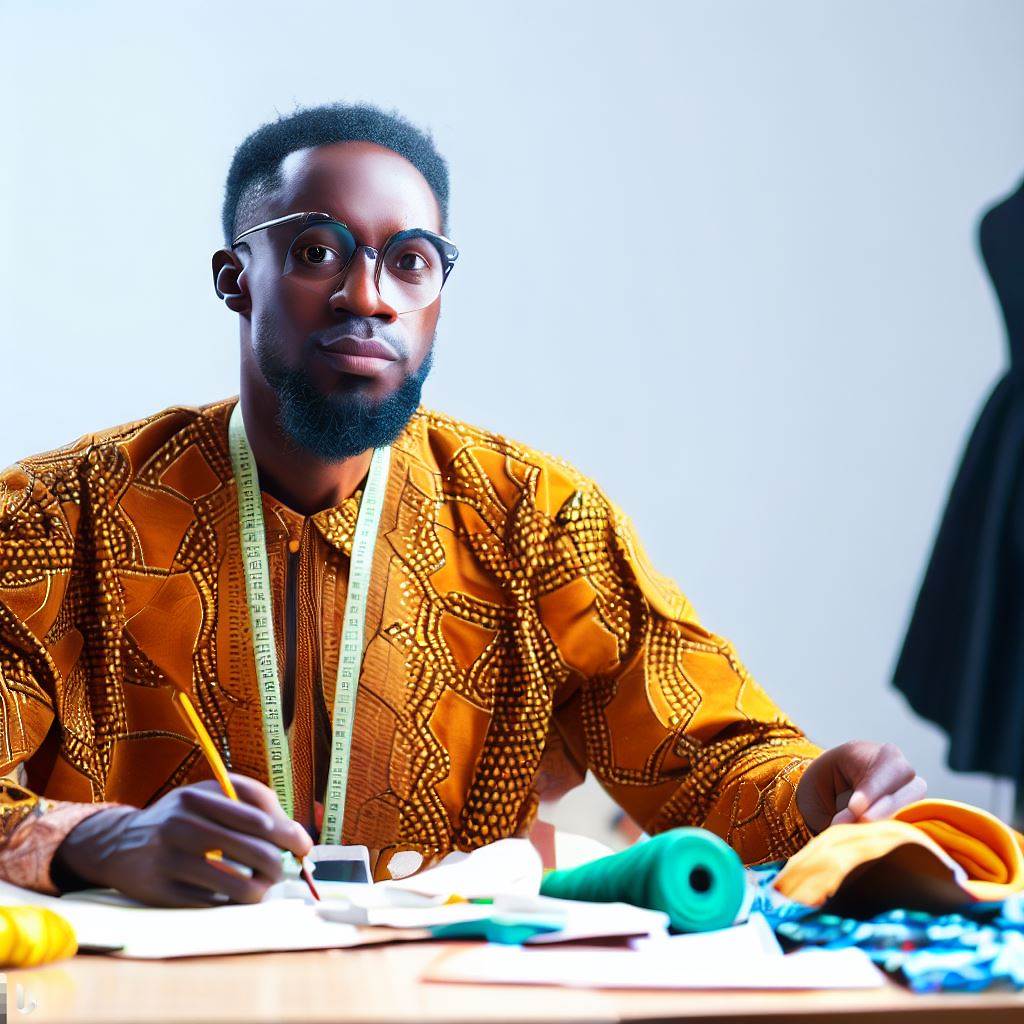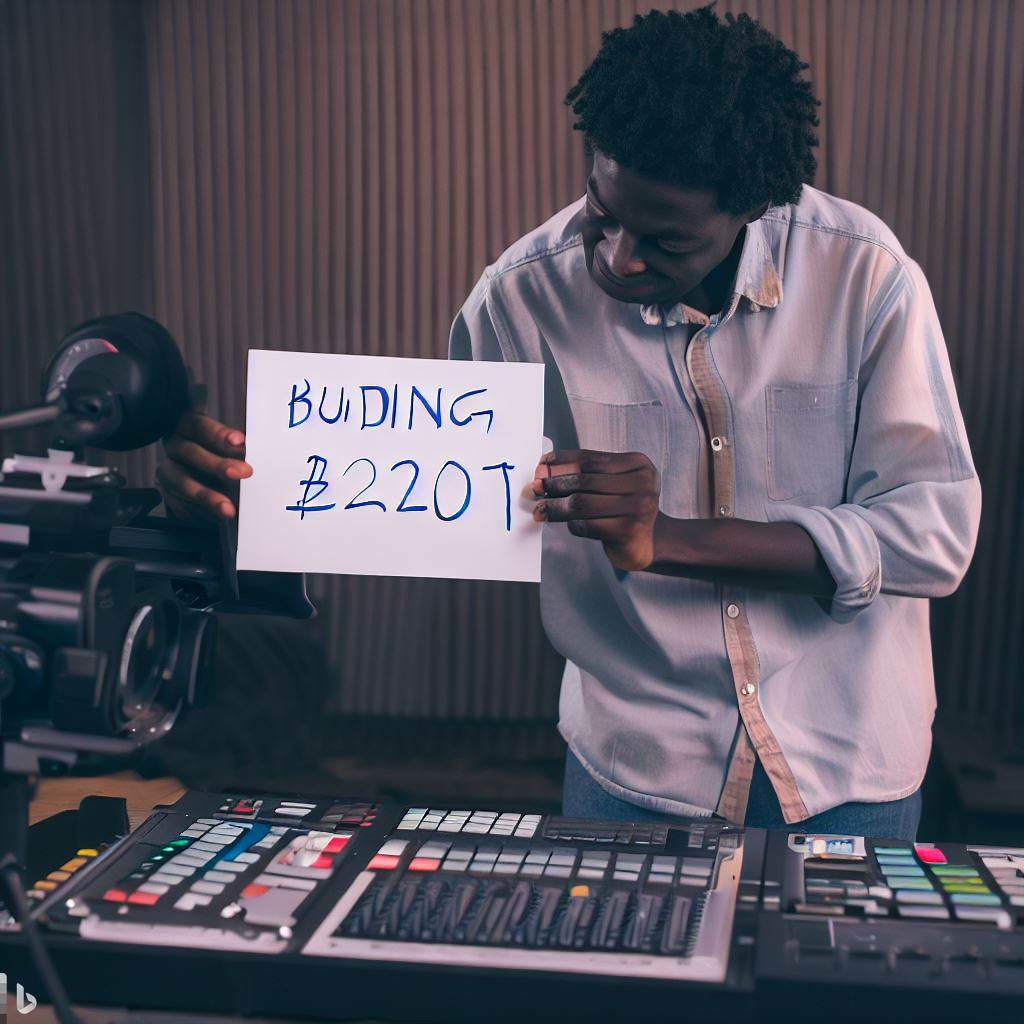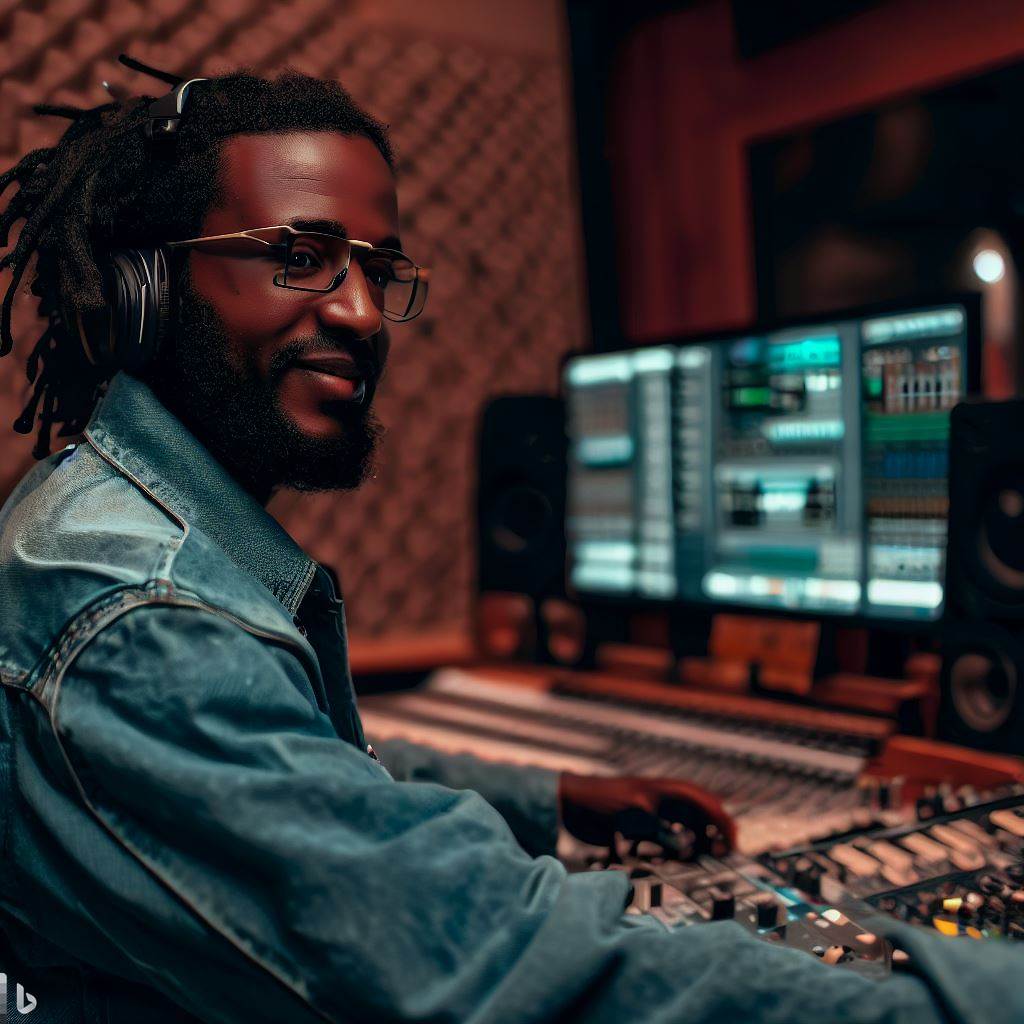Introduction
Brief explanation of Nigerian culture
Nigerian culture embodies a rich heritage of customs, traditions, music, dance, art, and language.
Importance of costume design in Nigerian culture
Costume design plays a vital role in Nigerian culture, reflecting identity, status, rituals, and festivals.
Unveiling Nigerian Culture:
- Rich ethnic diversity.
- Colorful traditions.
- Vibrant festivals.
- Expressive arts.
Significance of Costume Design:
- Cultural Identity: Reflects heritage.
- Storytelling: Chronicles history.
- Celebration: Adorns festivals.
- Unity: Bonds communities.
- Innovation: Infuses modernity.
Costume design in Nigeria transcends aesthetics, weaving intricate narratives of cultural pride and historical resonance.
Nigerian culture and its influence on costume design
Traditional Nigerian clothing
1. Traditional materials and fabrics
Nigerian culture plays a significant role in costume design, especially when it comes to traditional Nigerian clothing.
- The materials and fabrics used in these garments are essential in reflecting the cultural heritage and traditions of the Nigerian people.
- Nigeria’s cultural heritage deeply influences costume design, with traditional clothing serving as a prominent aspect.
- When it comes to traditional Nigerian clothing, the choice of materials and fabrics is crucial.
- These textiles are carefully selected to reflect the cultural roots and traditions of the Nigerian people.
- Fabrics like Adire, Aso Oke, and George are commonly used in creating traditional attire. Adire, which features indigo-dyed patterns, represents the Yoruba culture.
- Aso Oke, with its interwoven threads, is often worn for special occasions like weddings and festivals.
- George fabric, known for its bright colors and decorative motifs, is popular among the Igbo and Edo ethnic groups.
2. Symbolism and meaning behind the designs
Moreover, the designs of traditional Nigerian clothing carry deep symbolism and meaning.
- Each pattern, color, and motif represents specific cultural values, beliefs, and history.
- In addition to the materials used, the designs of traditional Nigerian clothing hold significant meaning and symbolism.
- Each pattern and motif tells a unique story, representing cultural values and history.
- For example, the Yoruba’s Aso-Oke fabric often features intricate geometric patterns symbolizing unity, wealth, and prosperity.
- The Adire fabric, with its tie-dye technique, showcases individual creativity and expression.
- These designs not only enhance the overall aesthetics but also serve as cultural identifiers for the Nigerian people.
Nigerian cultural festivals and their impact on costume design
1. Examples of popular festivals
Nigerian cultural festivals are vibrant celebrations that showcase the diversity and richness of the country’s traditions.
Some of the popular festivals include the Durbar Festival, New Yam Festival, and Argungu Fishing Festival.
- Nigerian cultural festivals play a crucial role in shaping costume design.
- These festivals bring communities together in joyful celebrations and provide a platform for creative expression through costumes.
- The Durbar Festival, held in Northern Nigeria, is a grand event where participants showcase their elaborate outfits adorned with vibrant colors and decorative accents.
- The New Yam Festival, celebrated by the Igbo people, features traditional costumes that reflect their agricultural heritage and give thanks for a bountiful harvest.
- The Argungu Fishing Festival showcases costumes with intricate beadwork, representing the rich cultural heritage of the Kebbi region.
2. Unique costumes worn during these festivals
These festivals provide an opportunity for costume designers to create unique and elaborate costumes.
- These outfits are often characterized by vibrant colors, intricate embroidery, and accessories that reflect the cultural significance of each festival.
- The costumes worn during these festivals are not only visually appealing but also hold cultural significance.
- They are designed to embody and reinforce cultural values, history, and traditions.
- Artisans meticulously handcraft stunning and authentic costumes using locally sourced materials like beads, cowries, feathers, and shells.
- The use of these materials not only represents the cultural heritage of Nigeria but also supports local artisans and sustains traditional craft techniques.
Generally, Nigerian culture plays a vital role in costume design, particularly in the realm of traditional clothing.
The choice of materials, design elements, and symbolism all contribute to the rich cultural heritage and history of the Nigerian people.
Cultural festivals provide a platform for costume designers to showcase their creativity and create unique outfits that celebrate and honor Nigeria’s diverse traditions.
By incorporating these cultural elements, costume design becomes a powerful medium for preserving and promoting Nigerian culture.
Read: Music Producers and Talent Scouting in Nigeria: A Close Look
Sample Nigerian costume designs
Gele – Traditional headtie
1. History and significance
- The gele is a traditional headtie worn by Nigerian women for various occasions.
- It can be traced back to ancient times when it was worn as a symbol of wealth and social status.
- The length, width, and style of the gele varied depending on the region and occasion.
- The gele holds great historical and cultural significance for Nigerian women.
- It is not just a fashion accessory but also reflects the social status and wealth of the wearer.
2. Different styles and variations
There are numerous styles and variations of the gele, each with its own unique characteristics.
- Some popular styles include the Iro, which is a simple wrap around the head, the Avant-Garde, which features intricate folds and pleats, and the Iconic Gele, which is larger and more dramatic in size.
- The different styles and variations of the gele allow women to express their individuality and personal style.
- It is often worn with traditional Nigerian dresses, making it an essential component of Nigerian fashion.
Agbada – Traditional male attire
1. Description and significance
- The agbada is a flowing gown-like outfit worn by Nigerian men, particularly during special occasions such as weddings, festivals, and traditional ceremonies.
- It consists of three pieces – a wide-sleeved robe, a long-sleeved inner shirt, and a pair of trousers.
- Similarly, the agbada is a symbol of Nigerian masculinity and cultural identity.
- It is associated with special occasions and represents elegance and prestige.
- The three-piece outfit is carefully tailored and adorned with intricate embroidery, reflecting the craftsmanship and attention to detail in Nigerian culture.
- The agbada has an undeniable regal aura and exudes confidence and power.
2. Modern adaptations and variations
In recent years, the agbada has undergone modern adaptations to suit contemporary fashion trends.
While the traditional agbada was made from elaborate fabrics such as brocade and embroidered silk, modern versions are often made from lighter fabrics and feature simpler designs.
Additionally, some men now opt for shorter lengths and more fitted styles.
The Nigerian culture plays a significant role in costume design, as evident in the rich history and diversity of traditional attire.
- The gele, a traditional headtie, and the agbada, a traditional male attire, are two prime examples of Nigerian costume designs that showcase the influence of culture and heritage.
- In recent years, both the gele and agbada have witnessed modern adaptations and variations. This evolution is a testament to the dynamic nature of Nigerian fashion.
- Younger generations have embraced these traditional designs and incorporated contemporary elements to create a fusion of past and present.
- The lighter fabrics and simplified designs of the agbada cater to the changing preferences of Nigerian men, who now seek more comfortable and versatile options.
All in all, Nigerian culture plays a significant role in costume design, particularly in the case of the gele and agbada.
These traditional Nigerian garments, worn by women and men respectively, reflect not only the rich history and heritage of the country but also the creativity and adaptability of its people.
Whether maintaining traditional styles or embracing modern adaptations, Nigerian costume design continues to captivate and inspire.
Read: In-Depth Analysis: The Nigerian Music Producer’s Workspace

Discover More: Understanding the Role of a Make-up Artist in Nigeria’s Fashion
Global recognition of Nigerian culture in costume design
Nigerian designers breaking into the international fashion scene
- The Nigerian fashion industry has gained significant recognition globally in recent years.
- Designers such as Deola Sagoe, Lisa Folawiyo, and Tiffany Amber have successfully showcased Nigerian culture in their designs.
- These designers have participated in renowned fashion shows like New York Fashion Week and London Fashion Week.
- Their creativity and incorporation of Nigerian traditional elements have captivated international audiences.
- Nigerian designers have been able to make a mark in the fashion industry by merging traditional and contemporary styles.
- Their designs are not only celebrated within Nigeria but also appreciated by fashion enthusiasts worldwide.
- Through their success, Nigerian designers are effectively promoting Nigerian culture and challenging Western-centric fashion norms.
Impact of Nigerian traditional attire on contemporary fashion trends
- Nigerian traditional attire, such as the Ankara fabric, has become a global fashion trend.
- Designers from various countries now incorporate Ankara prints into their collections.
- The vibrant colors and unique patterns of Nigerian traditional attire have captivated the fashion world.
- International celebrities like Beyoncé and Rihanna have been spotted wearing Nigerian-inspired designs.
- This recognition has increased the demand for Nigerian traditional attire and boosted the local fashion industry.
- The influence of Nigerian culture extends beyond clothing, with traditional accessories like beads and headpieces gaining popularity.
- Nigerian fashion has also inspired new trends in hair and makeup, with African-inspired braids and bold, colorful makeup becoming mainstream.
- The fusion of Nigerian culture and contemporary fashion has brought diversity and inclusivity to the industry.
- The acceptance and embrace of Nigerian cultural elements by the global fashion community serve as a testament to the richness of Nigerian heritage.
- Nigerian fashion designers are redefining the concept of beauty in the fashion industry by celebrating and showcasing diverse cultural identities.
Overall, Nigerian culture has attained significant global recognition in costume design.
Nigerian designers breaking into the international fashion scene have made a mark by successfully incorporating Nigerian traditional elements into their designs.
This recognition has impacted contemporary fashion trends, with Nigerian traditional attire becoming a global fashion trend and influencing designers worldwide.
The fusion of Nigerian culture and contemporary fashion has brought diversity and inclusivity, redefining the concept of beauty in the industry.
Nigerian designers are effectively promoting Nigerian culture and challenging Western-centric fashion norms, making Nigerian fashion a force to be reckoned with on the global stage.
Read: Nigerian Music Production: Understanding the Legal Aspects
Find Out More: Skills Needed to Thrive as an Artists’ Manager in Nigeria
Preservation and Evolution of Nigerian Culture in Costume Design
The preservation and evolution of Nigerian culture in costume design is a topic of utmost importance.
Nigerian culture is rich and diverse, and the traditional costumes have always been a significant part of the cultural heritage. However, numerous challenges arise in preserving these practices.
Challenges Faced in Preserving Nigerian Cultural Practices
- Westernization and globalization: Westernization and globalization pose significant challenges in preserving Nigerian cultural practices.
The influence of Western culture and globalization has led to the erosion of Nigerian cultural values. This influence has impacted traditional costume design as well. - Modernization of fashion trends: The modernization of fashion trends leads to a decline in the popularity of traditional costumes.
With the advent of modern fashion trends, traditional costumes have taken a backseat. Younger generations are more inclined towards contemporary fashion, neglecting their heritage.
These challenges have threatened the preservation of Nigerian cultural practices in costume design. However, there are efforts being undertaken to safeguard and promote Nigerian cultural heritage.
Efforts to Preserve Nigerian Cultural Heritage in Costume Design
- Promoting cultural education: One of the key efforts is promoting cultural education among Nigerians to create awareness and appreciation.
Cultural education plays a vital role in creating awareness and appreciation for Nigerian cultural practices, including costume design. It helps individuals understand and value their cultural roots. - Integrating traditional designs into modern fashion: Integrating traditional designs into modern fashion aims to revive and bring relevance to Nigerian costumes.
By incorporating traditional designs into modern fashion, designers are reviving the interest in Nigerian costumes.
This integration gives a contemporary touch to traditional attire, making it more appealing to the younger generation.
These efforts aim to preserve and evolve Nigerian culture in costume design.
By promoting cultural education and integrating traditional designs into modern fashion, Nigerian designers are ensuring that their cultural heritage remains relevant and appreciated.
In short, the preservation and evolution of Nigerian culture in costume design face challenges like westernization, globalization, and the trend of modern fashion.
However, efforts such as promoting cultural education and integrating traditional designs into modern fashion are being made to counter these challenges.
It is crucial to recognize and appreciate the role of Nigerian culture in costume design, as it helps preserve the country’s rich cultural heritage while adapting to the changing times.
Read: The Role of Technology in Nigeria’s Music Production Scene
Find Out More: Success Stories of Top Concert Promoters in Nigeria
Conclusion
Recap of the significance of Nigerian culture in costume design
Nigerian culture plays a paramount role in costume design, bringing uniqueness and diversity to the fashion industry.
Through the integration of Nigerian cultural elements, costume designers can create authentic and meaningful designs that reflect the rich heritage of the country.
Furthermore, embracing Nigerian culture in costume design promotes cultural preservation efforts and raises awareness about the value of traditional practices.
Call to appreciate and support Nigerian costume designers and cultural preservation efforts.
By appreciating and supporting Nigerian costume designers, we contribute to the preservation of their cultural heritage and stimulate the growth of the fashion industry in Nigeria.
It is crucial to celebrate and respect the integral role that Nigerian culture plays in costume design.
Let us acknowledge and support the efforts of Nigerian costume designers in promoting cultural diversity and preserving traditional practices.
Together, we can foster a global appreciation for Nigerian culture and ensure its rich legacy continues to thrive in the world of costume design.




